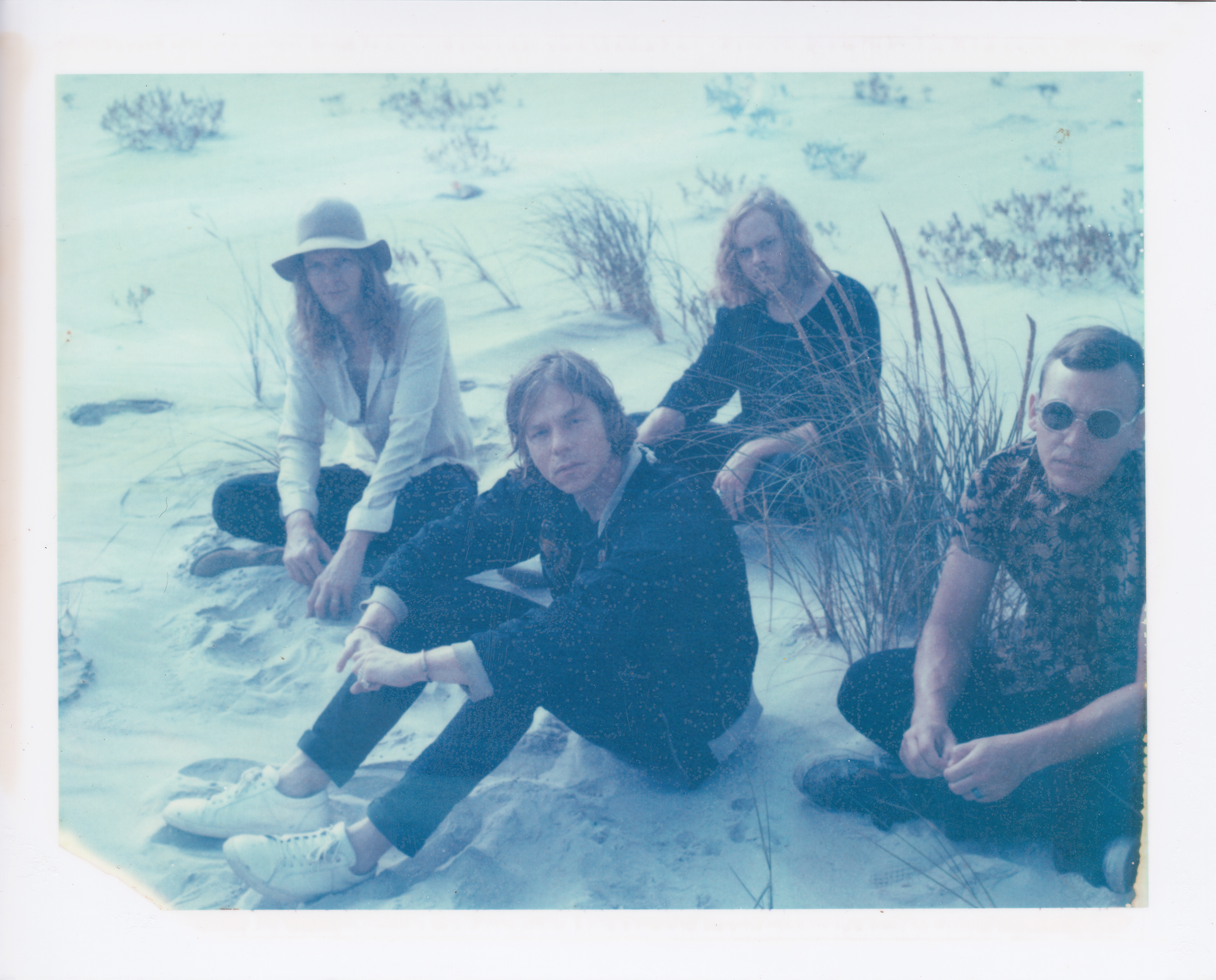Spotlight: Cage the Elephant

Cage The Elephant frontman Matt Shultz pauses for a second, takes a deep breath and calmly states, “He’s a visionary. Obviously.” Shultz isn’t referring to one of the longtime bandmates in his Bowling Green, Ky., outfit or Dan Auerbach, the all-star producer behind their latest LP, Tell Me I’m Pretty. He’s talking about the late David Bowie, a man that Shultz identifies as one of his favorite artists of all time. The 32 year old chooses his words carefully when discussing Bowie, further expanding, “I’ve always known [Bowie’s art] was super powerful, super strong. But he’s one of those artists that—even as highly regarded as he was—it continues to grow.”
That same sentiment can be applied to Shultz and the rest of Cage The Elephant as well, who—a decade into their career—are more popular and adventurous than ever. While the band has only broken into the modern-rock mainstream in recent years, many of their peers saw the star potential of Shultz and his bandmates— older brother and guitarist Brad, drummer Jared Champion and bassist Daniel Tichenor— from the beginning. Cage The Elephent supported Queens of the Stone Age on their first real tour, and they managed to impress oftenskeptical onlookers at South By Southwest. Their 2008 self-titled debut included the critic favorite “Ain’t No Rest for the Wicked” and the quintet became festival mainstays shortly thereafter. They’ve also spent time on the road with Foo Fighters and Auerbach’s Black Keys, where they struck up a bond that would result in Tell Me I’m Pretty. Dave Grohl even filled in for a few gigs when drummer Jared Champion’s appendix burst. (Founding guitarist Lincoln Parish left the group on friendly terms in December 2013, and has been replaced by touring keyboardist/guitarist Matthan Minster and lead guitarist Nick Bockrath, the latter of whom is an alum of American Babies and Disco Biscuits associates Nicos Gun.)
“He really understands how to seriously blend contemporary with classic,” Shultz says of Auerbach’s production approach, which marks a change from Jay Joyce, who produced the group’s first three records. “He’s very much a chef. He knows his tones and textures.” Shultz references a few Auerbach-produced records as his favorites, including Dr. John’s Locked Down, Lana Del Rey’s Ultraviolence, Ray LaMontagne’s Supernova and Bombino’s Nomad. Brad Shultz first played Auerbach some demos the band had been working on while they were on tour together in 2014, and The Black Keys guitarist jumped at the chance to produce the follow-up to 2013’s Melophobia, which Matt refers to as an “instant gratification” record for him. “[Melophobia] was a rough record to make, but when it was done, I was still far enough removed that I pretty quickly enjoyed what we had done,” he notes. With Tell Me I’m Pretty, the feeling wasn’t quite the same.
“I was maybe a little too close,” he says of the album’s subject matter. “We always talk about trying to reach this higher level of transparency, and maybe, to a certain degree, it was a little too much on Tell Me I’m Pretty. Some of it is like journal entries.” Shultz dives in further: “And possibly connecting some kind of undercurrent of self-hatred, I instinctually had negative feelings about the record at first. I see a lot of my flaws in the album, and I didn’t like looking at that.”
As he carefully explains what made Tell Me I’m Pretty a hit with the band’s loyal fanbase, he attributes it to an ideal that rang true with the man he spoke of earlier, David Bowie. “Honesty always wins,” he says, lamenting the “selfie generation” that seems to overrun the world today. “It’s a powerful statement of honesty, especially within the social climate—the way that we’re kind of curating the presentation of our lives.”
The album’s title, which could be mistaken for a lost New York Dolls record, also addresses that current social climate. While the album’s name actually stems from a friend’s offhanded comment one night, Shultz felt it was a fitting summation of the record’s overarching theme. “It has a really dark underbelly,” he says of the title. “It also deals with people’s unquenchable thirst for acceptance, so we thought it would be interesting to [address] that.”
Shultz laughs when he surveys the band’s touring schedule for the year, which includes numerous festivals and a tour package with Silversun Pickups (a band that Cage opened for early in their career), Foals and Bear Hands, as well as a special gig with Metallica in San Francisco. “We’re super stoked,” Shultz says. “I’d call them The Beatles of metal, but they’re their own thing.”



















